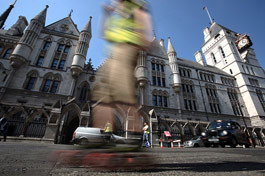The case in question is the trial of four men accused of a robbery at Heathrow in 2004, of which some of the accused were tried in a long-running case that collapsed last year. Evidence was found of jury tampering, where members of the jury were influenced in their decision by outside agents. The Lord Chief Justice has decided that the cost of effectively policing the jury, and ensuring the safety of them and their family, is too high, and has ruled that "in due course" the trial will begin with only the judge hearing the case. It is the first time this type of crown court case, known as a "diplock" trial, has been authorised since it was made legal in 2003.
As mentioned, it's the first in England or Wales, but Northern Ireland had experience of them in the past, and that precedent indicates just how serious and potentially explosive this will be. Enshrined in law since the Magna Carta, trial by jury is a bedrock of the British judicial system: to cast it aside by effectively saying that we don't have the resources to ensure a free and fair trial is a remarkable moment in legal history.
The figures do stack up, however: one calculation valued the cost of policing the jury at £6 million for a 6-month case, and removing 82 police officers from their normal roles. A single judge will be a comparative bargain, and (theoretically) be untouchable. Let's just hope that lucky (or just plucky) individual has got nerves of steel.





